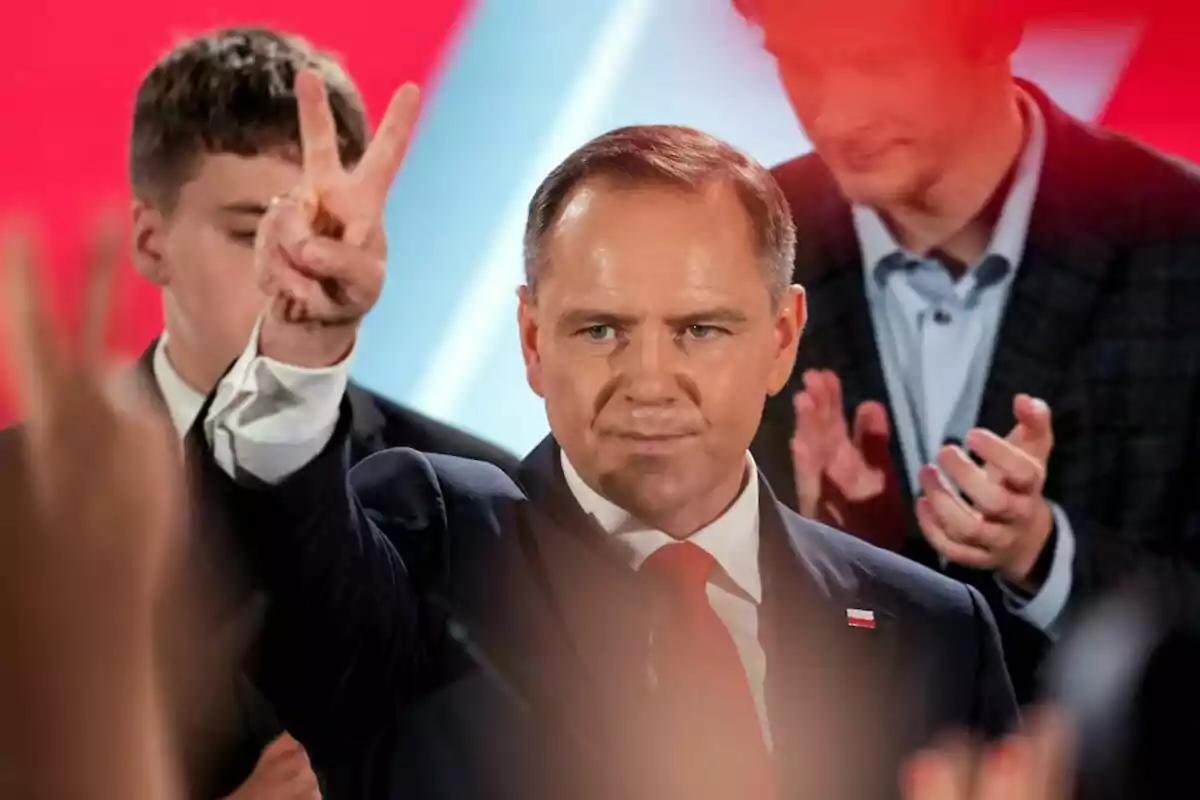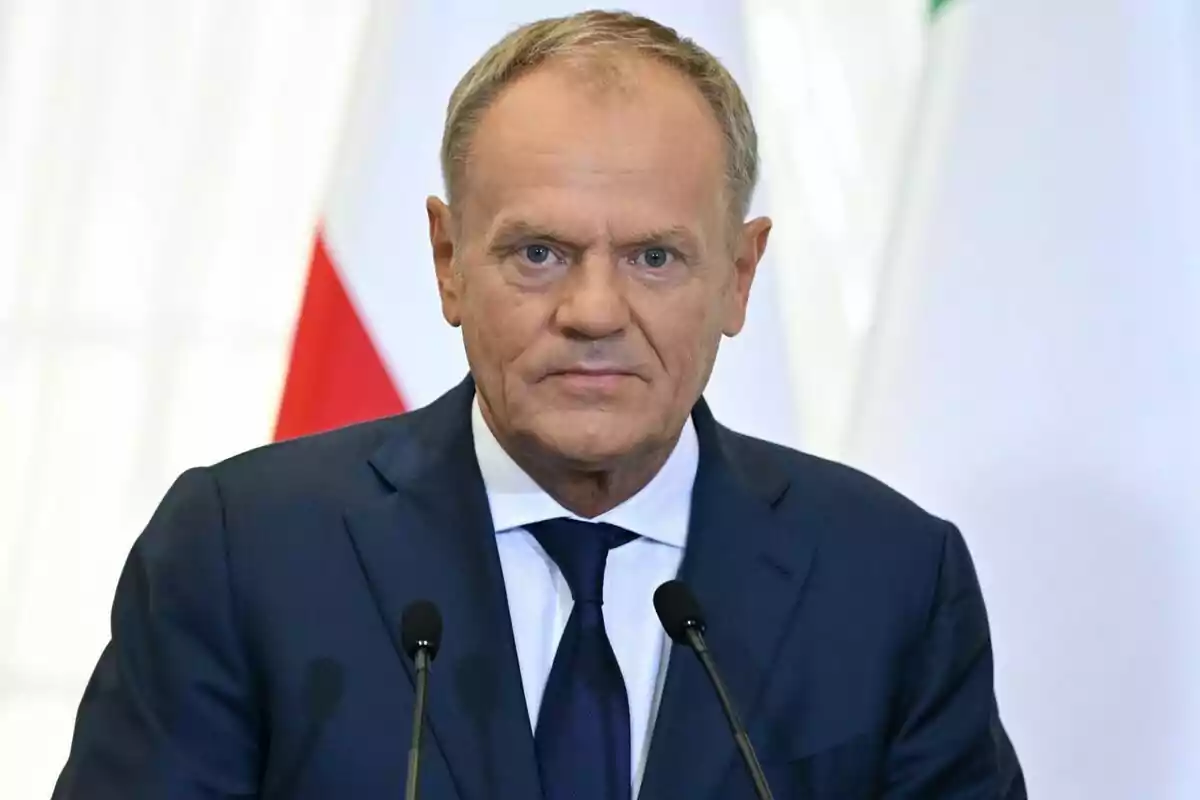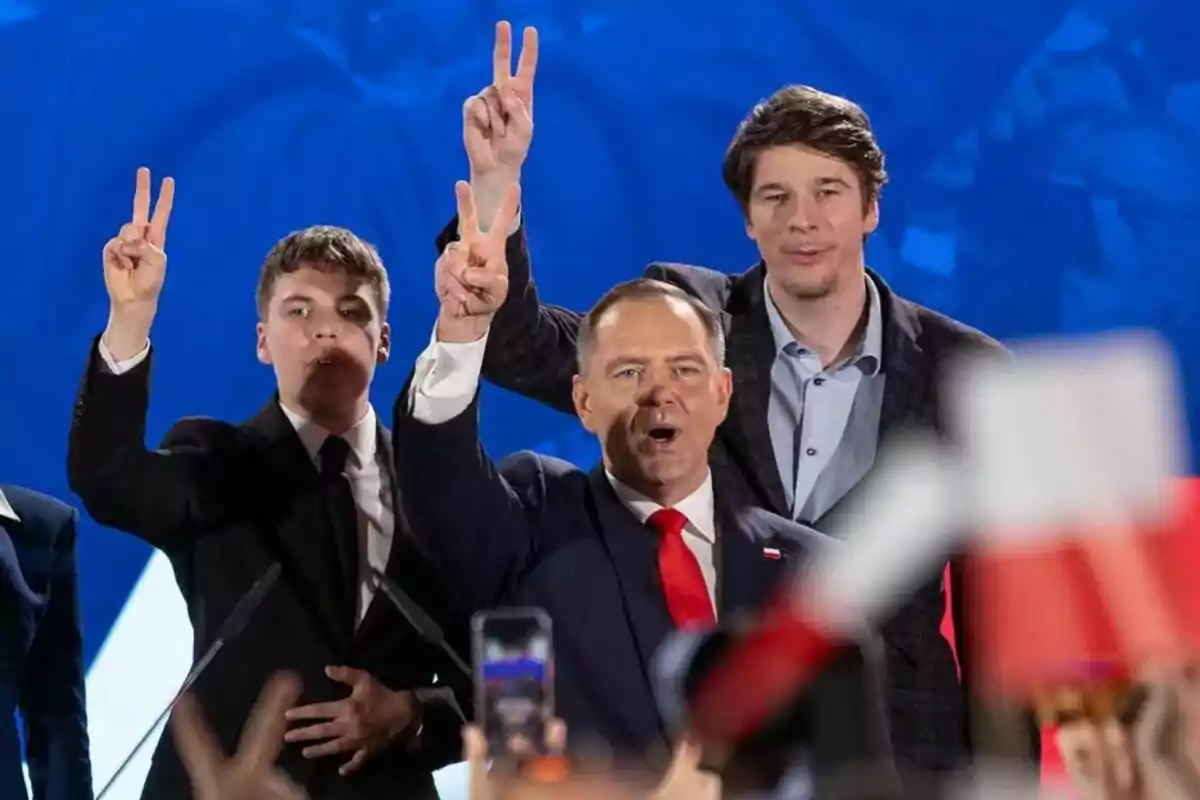
New blow to the Europhile elite: what Nawrocki's victory in Poland means
The ultranationalist backed by Trump has prevailed over the establishment in the presidential elections
Ultranationalist historian, unequivocally protectionist, and admirer of Donald Trump. This is Karol Nawrocki, the leader of Poland's radical right who, this Sunday, has left the pro-European elite stunned. The ultraconservative, supported by an anti-immigration discourse and critical of Ukraine, has prevailed with 50.9% of the votes over the representative of the pro-European establishment.
His victory has been a heavy blow to the EU's bureaucratic elite, which is losing influence in a key country for the advancement of sovereigntist options in Europe. It is also a reflection of the growing disaffection among Europeans toward the globalist project supported by Brussels.

It is no coincidence that Polish Prime Minister and former President of the European Council, Donald Tusk, described these elections as "the most important in the country's history." The results put an end to the liberal conservatives' dream of blocking the path of the Euroskeptics. Poland is now exposed to a bipolarity between the presidency and the government.
Meanwhile, Nawrocki is completing the long journey of the radical right, which has been fueled for years by the failure of neoliberal reforms in Eastern Europe. He is thus following in the footsteps of the Kaczinsky brothers at the helm of PiS (Law and Justice), a party that managed to embody the hopes of the "losers of the transition" and that now stands up to the excesses of globalism.
"Poles first"
Karol Nawrocki, a historian shaped by Polish anti-communist sentiment, has grown as a politician in the shadow of former Prime Minister Jaroslaw Kaczinsky. At 42 years old, he has defeated the official establishment thanks to an effective campaign with a striking slogan: "Poland first, Poles first."
On immigration, Nawrocki has promised to toughen the conditions for obtaining citizenship and to close the border with Germany. He also proposed giving Poles priority when accessing social assistance. The new Polish president is demanding more sovereignty to decide migration policies in the face of Brussels's dictates.
The other hot topic of his campaign was support for Ukraine. The leader of Poland's radical right defended Ukrainian sovereignty against Russia but opposed its entry into NATO and criticized Zelensky's attitude. He also criticized the privileged status of Ukrainian refugees in Poland and promised to put "Poles first."
Friend of Donald Trump
Nawrocki has had to face a tough campaign in which the official media have published several controversial reports about him. He is also an anti-Soviet historian who has stirred controversy with his books. Despite the reservations about him within the core of PiS, this ultimately played in his favor.
In this sense, his profile is very similar to Donald Trump's, who always ends up benefiting from controversy. In fact, their ties are very close, and the American president publicly supported him during the campaign.

This is very different from his relations with Moscow, since Nawrocki is on the most-wanted list for his proposal to tear down Soviet monuments in Poland. This has made him a threatened person with the right to carry firearms for self-defense.
Married with two children, a former boxer and former footballer, Poland's new president is a staunch defender of conservative and family values. He also comes from Gdansk, the heart of working-class Poland where the anti-communist Solidarnosc union was born. Now he wants to open a new chapter, with "strong leadership for difficult times."
The pendulum keeps swinging
The results in Poland are swinging the pendulum further to the right amid the ongoing cultural battle in Europe and around the world. In the EU, the victory of the radical right in Poland coincides with the surge in Portugal of the anti-immigration party Chega. The ultranationalist right has also experienced significant growth in Germany, where the center-right and social democracy have formed an alliance.
The return of Donald Trump has given new momentum to sovereigntist options, which in Brussels are increasingly weakening the bureaucrats. This is causing the elite to desperately rely on leaders like Giorgia Meloni, whom they consider the lesser evil.
More posts: